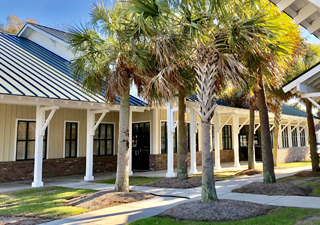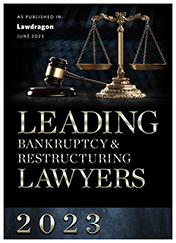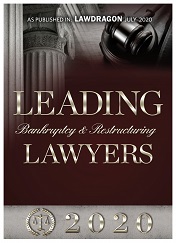Property Interests of Debtor and Other Family Members Affected by Bankruptcy Case
Analysis of the extent and nature of the bankruptcy estate is essential to determining what will happen to a debtor's property in bankruptcy, a subject that is often of enormous importance to the debtor's spouse or former spouse and to other members of the debtor's family.
Creation of the Bankruptcy Estate
The bankruptcy estate comes into being immediately upon the filing of a voluntary or involuntary bankruptcy petition. It includes virtually all types of interests in property that the debtor had as of the filing. The property need not be within the United States to be included in the estate. Generally speaking, as of the filing of the bankruptcy case, the bankruptcy estate includes all such property, until such time as title to the property vests in another party. Certain other property interests, such as a nondebtor spouse's interests in community property, can also come into the bankruptcy estate.
The consequences of property becoming part of the bankruptcy estate are significant. Besides coming within the exclusive jurisdiction of the bankruptcy court, the property receives the protection of the bankruptcy automatic stay, and the trustee or other party in control of the estate may demand turnover of property of the estate held by others. Depending upon the type of bankruptcy case filed, the property of the estate may be liquidated for the benefit of creditors. Also, the value of that property may be critical in determining how much must be paid to creditors by the debtor.
Distinction Between Property Interests and Claims
The Bankruptcy Code draws a sharp distinction between its treatment of property interests flowing into the estate and its treatment of claims against the debtor. A property interest held by a person other than the debtor is usually retained by that person and protected during the bankruptcy case, or else exchanged for its full value, unless it can be avoided under some provision of the Bankruptcy Code. A claim, however, is paid according to the Bankruptcy Code's rules of distribution, which may provide little or no payment on the claim if it is not secured by a lien or some other property interest.
Property Interests of the Debtor
Other bankruptcy provisions turn on whether property is property of the estate. Whether a nondebtor spouse's rights to property in a property settlement are vested can determine whether those rights are dischargeable in bankruptcy. Moreover, if an asset is property of the estate it is protected in many ways by the automatic stay. Even a secured party in possession must turn over property of the estate to the debtor or trustee upon the filing of a bankruptcy in most cases.
Property of Estate Listed in Debtor's Schedules
Any creditor, including a spousal creditor, has an interest in making sure that all property of the estate is listed in the debtor's schedules and, if not exempt, administered in the bankruptcy case for the benefit of creditors so that creditors receive the maximum possible return. If property is not listed, that must be brought to the attention of the parties, including the trustee, or the court. If the debtor has intentionally concealed property interests, it may be possible to object successfully to the discharge of any debts.
Copyright 2012 LexisNexis, a division of Reed Elsevier Inc.






